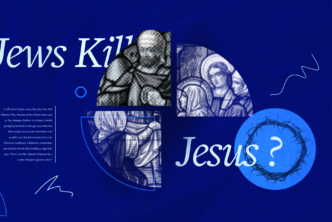The Bible has a lot to say about orphans. The Hebrew word for orphan is yatom—usually translated fatherless. It describes a child who lacks the protection and provision of a family.
The best modern equivalent for this type of person is a foster child—a child whose parents are either unable or unwilling to care for them.
Let’s see what the Bible has to say about them.
1. Orphans need justice
“Learn to do good;
seek justice,
correct oppression;
bring justice to the fatherless,
plead the widow’s cause.” —Isaiah 1:17
Orphans need justice. An ancient orphan and a modern foster child are among the most marginalized members of society. They need someone to speak on their behalf. They need someone to rule in their favor.
2. God will hear the fatherless crying for justice
You shall not mistreat any widow or fatherless child. If you do mistreat them, and they cry out to me, I will surely hear their cry . . .” —Exodus 22:22–23
While God promises to hear the prayers of all people, certain people groups appear to have special access to him (Psalm 34:17, John 9:31). Orphans are one of those groups.
3. God executes justice on their behalf
“He executes justice for the fatherless and the widow, and loves the sojourner, giving him food and clothing.” —Deuteronomy 10:18
God himself carries out justice on behalf of orphans. He provides for them. He protects them.
4. God is helper to the fatherless
“But you do see, for you note mischief and vexation,
that you may take it into your hands;
to you the helpless commits himself;
you have been the helper of the fatherless.” —Psalm 10:14
God has a track record of working on their behalf. The Psalmist knew it, and here points out God’s MO as the orphan-helper.
5. God acts as their father
“Father of the fatherless and protector of widows is God in his holy habitation.” —Psalm 68:5
One of God’s titles is Father of the fatherless (Psalm 68:5). He doesn’t leave the fatherless without protection or provision. He steps into the void and fills it himself. How? By sending his people to care for them.
6. Caring for orphans is part of a pure religion
Religion that is pure and undefiled before God, the Father, is this: to visit orphans and widows in their affliction, and to keep oneself unstained from the world.” —James 1:27
What makes a pure religion? James gives us a description, and care for orphans is on the list.
7. Caring for foster kids is like caring for Jesus
“Whoever receives one such child in my name receives me, and whoever receives me, receives not me but him who sent me.” —Mark 9:37
What is it like to care for orphans? It’s like caring for Jesus himself.




